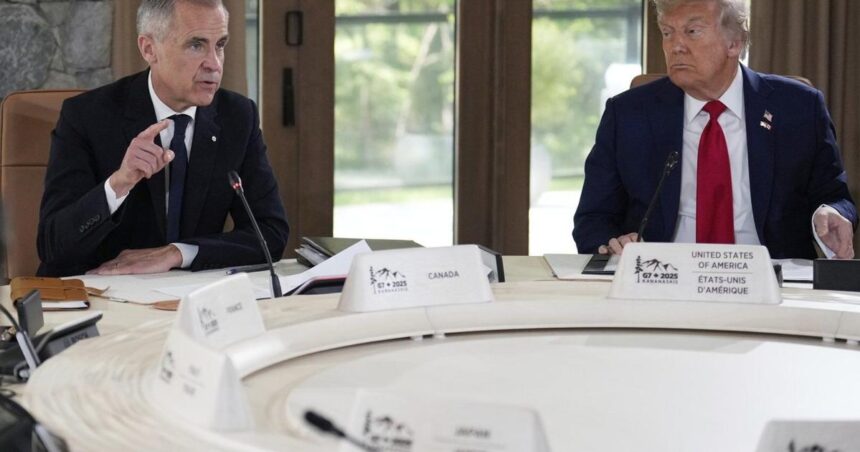The diplomatic chill between Ottawa and Washington is beginning to thaw as both nations return to the negotiating table this week, following months of tension over Canada’s proposed digital services tax. The high-stakes discussions, taking place in the shadow of the upcoming U.S. presidential election, represent a critical juncture for cross-border commerce between the world’s largest trading partners.
“We’re seeing a renewed commitment to dialogue,” said Finance Minister Chrystia Freeland during a press conference in Vancouver yesterday. “These conversations are complex but necessary for maintaining the integrated economic relationship that benefits millions of workers on both sides of the border.”
The dispute centers on Canada’s digital services tax (DST), which would impose a 3% levy on revenue generated by tech giants within Canadian borders. The U.S. has consistently opposed the measure, arguing it unfairly targets American companies like Google, Amazon, and Meta.
The Biden administration suspended trade talks in January after Canada refused to delay implementation of the tax. U.S. Trade Representative Katherine Tai described the Canadian proposal as “discriminatory” and threatened retaliatory tariffs that could affect up to $4 billion in Canadian exports.
Economic analysts warn that prolonged tension could ripple through both economies. “The Canada-U.S. trading relationship is worth approximately $2.6 billion daily,” noted Gordon Ritchie, former Canadian ambassador for trade negotiations. “Any disruption threatens supply chains that have become increasingly integrated since NAFTA and its successor agreement.”
Behind closed doors, negotiators are exploring potential compromises. Sources familiar with the discussions indicate that Canada might consider adjustments to its tax structure in exchange for guarantees that U.S. companies will pay their “fair share” of taxes on Canadian revenue.
For Canada, the stakes extend beyond immediate economic concerns. The government faces domestic pressure to follow through on promises to level the playing field between foreign digital enterprises and Canadian businesses. Prime Minister Justin Trudeau has repeatedly emphasized that the DST is about “tax fairness” rather than targeting American companies specifically.
Business leaders across multiple sectors are closely monitoring the talks. The Canadian Chamber of Commerce has urged a swift resolution, highlighting that uncertainty harms investment on both sides of the border. Technology firms, particularly startups caught in the crossfire, have expressed concern about being collateral damage in a dispute primarily focused on tech giants.
The timing of these renewed negotiations is particularly significant as both countries prepare for potential political transitions. The U.S. presidential election in November could fundamentally reshape American trade policy, while Canada’s minority government continues to navigate economic headwinds and political challenges.
As discussions continue in Washington, what remains clear is that the ultimate resolution will set important precedents for digital taxation globally. With over 30 countries implementing or considering similar measures, the Canada-U.S. compromise could become a template for addressing taxation in an increasingly borderless digital economy.
Whether these talks yield a breakthrough or break down again remains to be seen, but one certainty persists: in the deeply interconnected North American economy, finding common ground isn’t just preferable—it’s essential.










